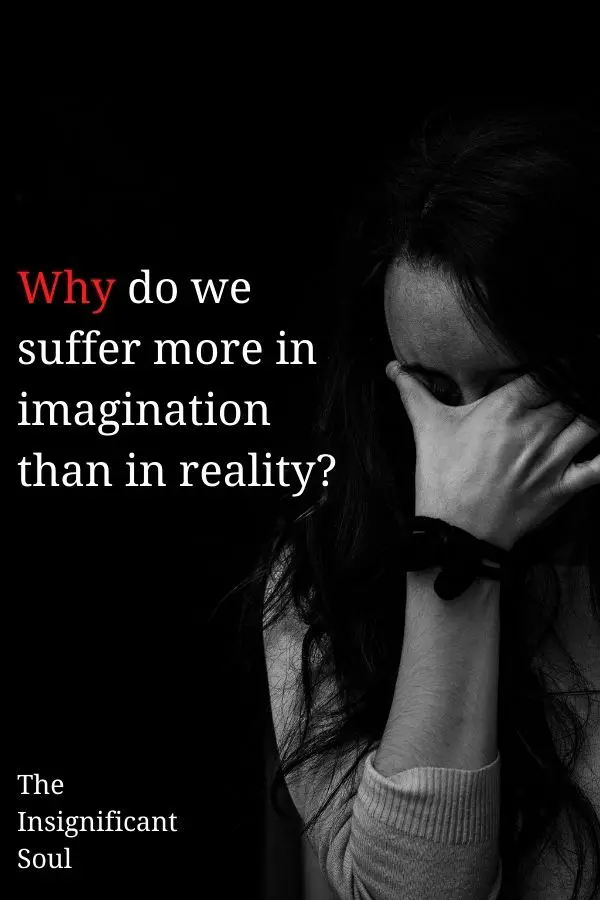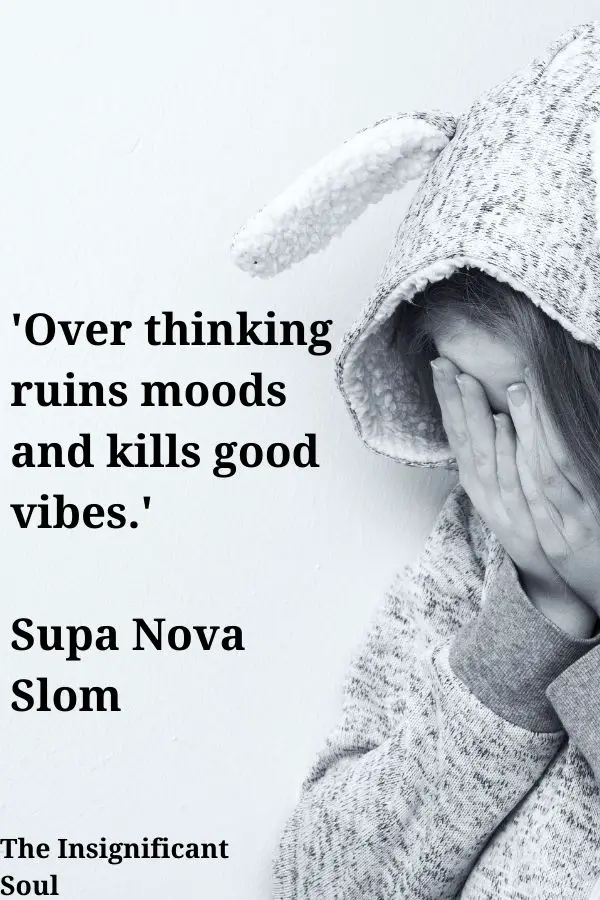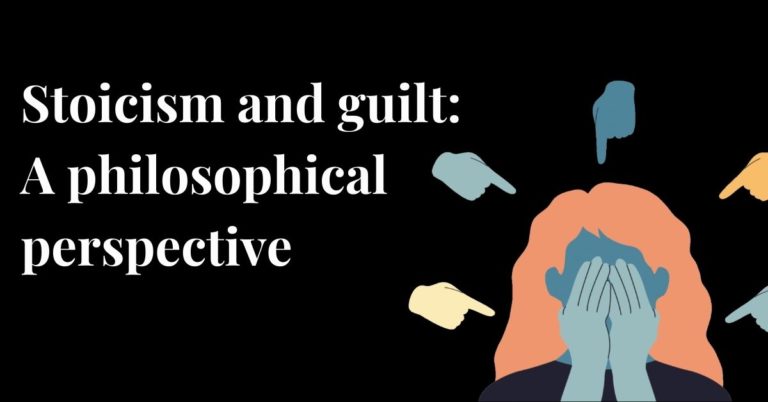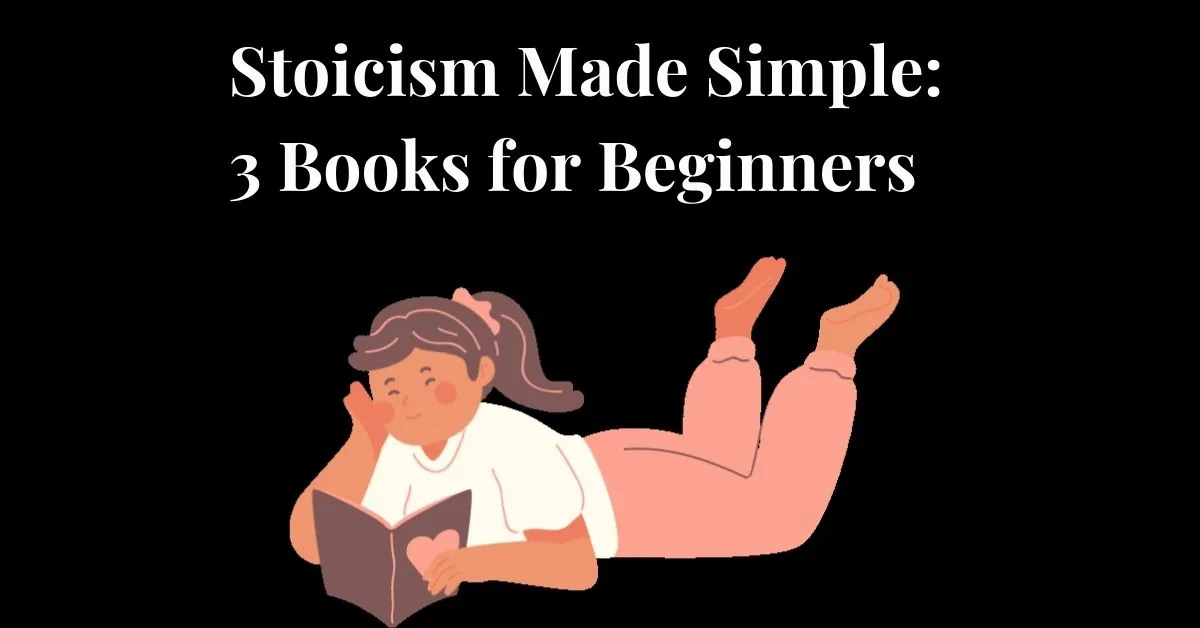Why do we suffer more in imagination than in reality?
Anxiety can be a real burden, causing even minor issues to feel like insurmountable problems in our minds. It’s easy to get caught up in the “what if” thoughts that can spiral out of control. However, as the Stoic philosopher Seneca noted, we often suffer more in our imagination than in reality. I used to wonder how this could be true – surely physical pain would always be worse than mental pain. But upon reflection, I realized that there have been many times when I worried endlessly about something, only for it to turn out fine in the end.
Upon further examination, I discovered that there are two main reasons why we tend to suffer more in our imagination. First, we often underestimate ourselves and our ability to handle difficult situations. Second, we tend to overestimate the severity of the situation and blow it out of proportion in our minds. By better understanding and acknowledging these tendencies, we can work towards managing our anxiety and finding relief from the mental suffering it can cause.

Table of Contents
We underestimate ourselves
Feeling like you’re not good enough can be a destructive and harmful thought to have, no matter what stage of life you’re in. It’s common to feel like you should be doing more, but this can often be fueled by unrealistic expectations of ourselves. We may believe that we have to be perfect in order to avoid negative consequences, but the reality is that no one is perfect. When we inevitably make mistakes or fall short of these unrealistic standards, it can be devastating to our self-esteem and give rise to our inner critic.
This inner critic is the voice in our head that tells us we can’t do something or that we’re wasting our time. When this voice takes over, it can cause us to suffer unnecessarily, as we hold ourselves to unrealistic standards that we set for ourselves. It’s important to recognize and challenge these thoughts and work towards more realistic and self-compassionate expectations of ourselves.

We overestimate the situation
Another reason why we may suffer more in our imagination than reality is that we have a tendency to overestimate the severity of a situation. This often happens when we overthink and focus on the negative aspects of a difficult situation. While it’s natural for our brains to consider various outcomes in order to protect us, the problem arises when we get caught in a negative thinking loop and start believing that the worst-case scenarios will definitely happen.
This type of hyperfocus on negative thoughts can have a physical impact on our bodies, activating the fight-or-flight response and releasing stress hormones. This means that we don’t even have to be in a stressful situation to experience this response – simply imagining the event can be enough to trigger it. It’s important to recognize and challenge these negative thought patterns in order to manage our suffering and find relief.

How can we be better?
So, how can we combat these negative tendencies and overcome the suffering that often results from them? One technique that has been helpful for me is to actively match my negative thoughts to the reality of a situation. For example, when I started a new job, I had a lot of anxiety about making a fool of myself on the first day. I wrote down all of these negative thoughts in a journal, even allowing myself to fully explore the worst-case scenarios.
However, when I actually started the job, none of these negative thoughts came to pass. In fact, my first day was quite pleasant, and I quickly made friends and felt like I belonged. After a week on the job, I revisited my journal and re-read all of the negative thoughts I had written down. This allowed me to see firsthand how these thoughts did not match up with the reality of what had happened.
I made sure to read the words aloud, so that I could hear the harsh and critical things I had been telling myself. Then, I spoke to my past self, offering encouragement and reminding myself that I had actually done well on the first day and made friends, rather than feeling like a loner in the corner. This was a very cathartic experience that helped me to let go of these negative thoughts and better cope with my anxiety.
Conclusion
I think that the insights of Seneca, a philosopher who lived thousands of years ago, are still relevant and applicable today. When we allow ourselves to, we can easily fall into negative thinking patterns that lead us to suffer more in our imagination than in reality. The key to overcoming this suffering is to be aware of when we’re engaging in these negative tendencies and then take steps to reframe our thinking. This process isn’t easy, but it’s worth the effort as it can help us to better manage our anxiety and find relief.







These words ring so true to me….. Thank you for sharing!
Loved it! Your article was an inspiration. Thank you so much! I had anxiety issues about how my job starts and now I am fine.